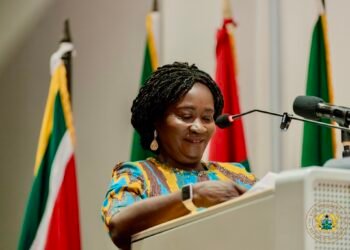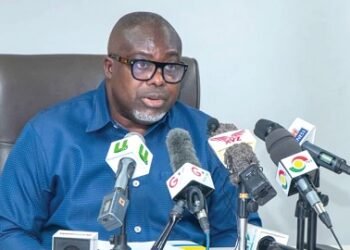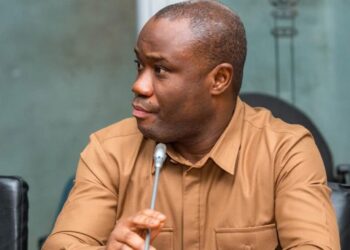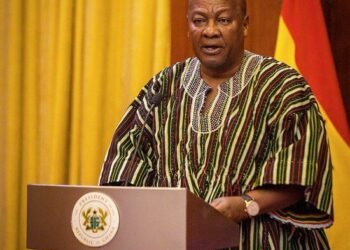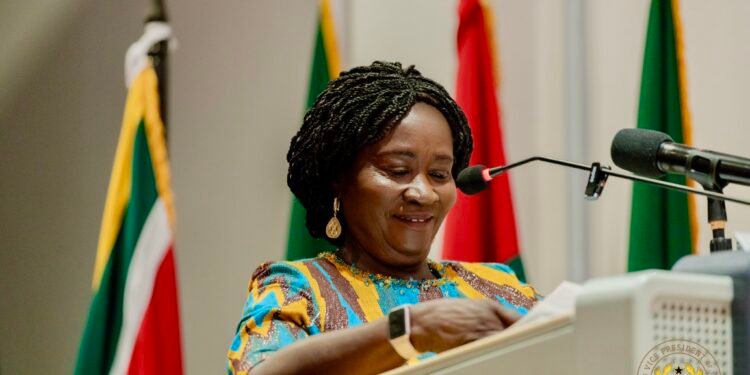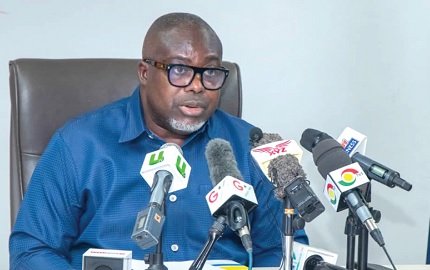CDD-Ghana Fellow and legal scholar, Professor Stephen Kwaku Asare, has offered a thoughtful reflection on the ongoing national debate over religious rights in mission-founded public schools, urging Christians and educational institutions to return to a tradition of hospitality that once defined Ghana’s mission school system.
Drawing from his own experiences as a product of St. Augustine’s College and St. Peter’s School—both mission institutions—Professor Asare emphasized that the ethos that shaped generations of students was rooted in confidence, openness, and a welcoming Christian spirit.
Those values, he noted, are undermined by recent public statements from the Ghana Catholic Bishops’ Conference and the Christian Council of Ghana, which appear resistant to accommodating non-Christian religious expression in mission-founded public schools. In a deeply personal but firm essay, Professor Asare explained that mission education had been central to his upbringing and moral development.
“Mission schools are not abstract institutions to me. They formed me. They shaped me. They disciplined me. GOGO is a direct beneficiary of mission education—twice over, not counting my primary education at St. John’s.”
CDD-Ghana Fellow and legal scholar, Professor Stephen Kwaku Asare
Though not Catholic, he said he “proudly carries the green of St. Augustine’s College and the yellow-and-green of St. Peter’s School” in his heart. The Christian identity of these schools, he argued, was never compromised by the presence of students of other faiths. Instead, it flourished because of its embrace of diversity.

Recalling his school days, he highlighted the case of a Buddhist student at St. Peter’s, affectionately nicknamed “More Chanting” by his peers. According to Professor Asare, the student was welcomed warmly by Father Glazel, a Catholic priest who “welcomed him fully, lovingly, without anxiety that the presence of one Buddhist would shake the foundations of a Catholic institution.”
That example, he said, reflected the true spirit of Christian education—a spirit built on trust, confidence, and love rather than fear or exclusion. Professor Asare argued that the recent statements by Christian leaders risk reviving exclusionary tendencies that contradict both the Gospel and Ghana’s constitutional framework.
“Christ never demanded that others suppress their faith before He interacted with them. Why then should a Muslim child seeking public education in a mission-founded public school be told—even indirectly—that their prayer, their scarf, their devotions are inconveniences?”
CDD-Ghana Fellow and legal scholar, Professor Stephen Kwaku Asare
Respecting Constitutional Guarantees of Religious Freedom.
He stressed that mission schools absorbed into the public system operate with public funding, public teachers, and public accountability. That reality, he said, transforms them into public institutions that must respect constitutional guarantees of religious freedom.
“Public rights follow public resources,” he reminded. While Christian heritage remains important, it cannot require non-Christian students to compromise their faith in order to access a publicly funded education.

Professor Asare further noted that past generations did not perceive religious diversity as a threat to institutional identity. St. Augustine’s and St. Peter’s, he observed, “did not lose their values because a Presbyterian, a Muslim, or a Buddhist walked through their gates.”
Instead, their Christian identity was strengthened by their willingness to welcome others. He warned against what he described as “ethical asymmetry,” where Christian institutions claim broad religious freedoms for themselves while resisting similar freedoms for non-Christians within the same public educational environment.
“The Christian light shines brighter when it shines alongside other lights, not when it tries to extinguish them,” he stated, calling for a return to the principles of inclusion and respect that once characterized mission education.
His comments come amid heightened public interest in the “Wesley SHS suit,” in which a private legal practitioner, Shafic Kwabena Osman, is challenging school policies that allegedly compel all students—regardless of faith—to participate in Methodist religious activities, while restricting practices central to the Muslim faith such as wearing the hijab and fasting during Ramadan.
Osman argues that these policies violate constitutional protections related to religious freedom, equality, and the prohibition of state-sanctioned religious imposition in public institutions.
The Attorney General, however, has defended the school, maintaining that its Methodist heritage entitles it to uphold doctrines that align with its founding mission. The Supreme Court has directed the school, the Ghana Education Service, and the Attorney General to formally respond to the suit, with Democracy Hub granted amicus curiae status to support the Court’s deliberations.

Against this backdrop, Professor Asare urged the nation—faith leaders, educators, policymakers, and citizens—to embrace a more generous vision of Christian heritage.
“Ghana does not need walls around public institutions; it needs bridges. And mission schools, of all institutions, are best placed to build those bridges,” he concluded, calling for Christians to defend their values “in the Christian way: with welcome, with humility, and with respect for the conscience of every Ghanaian child.”
READ ALSO: Banks Face Tough Road as BoG Demands 10 Percent NPL Ratio by 2026




